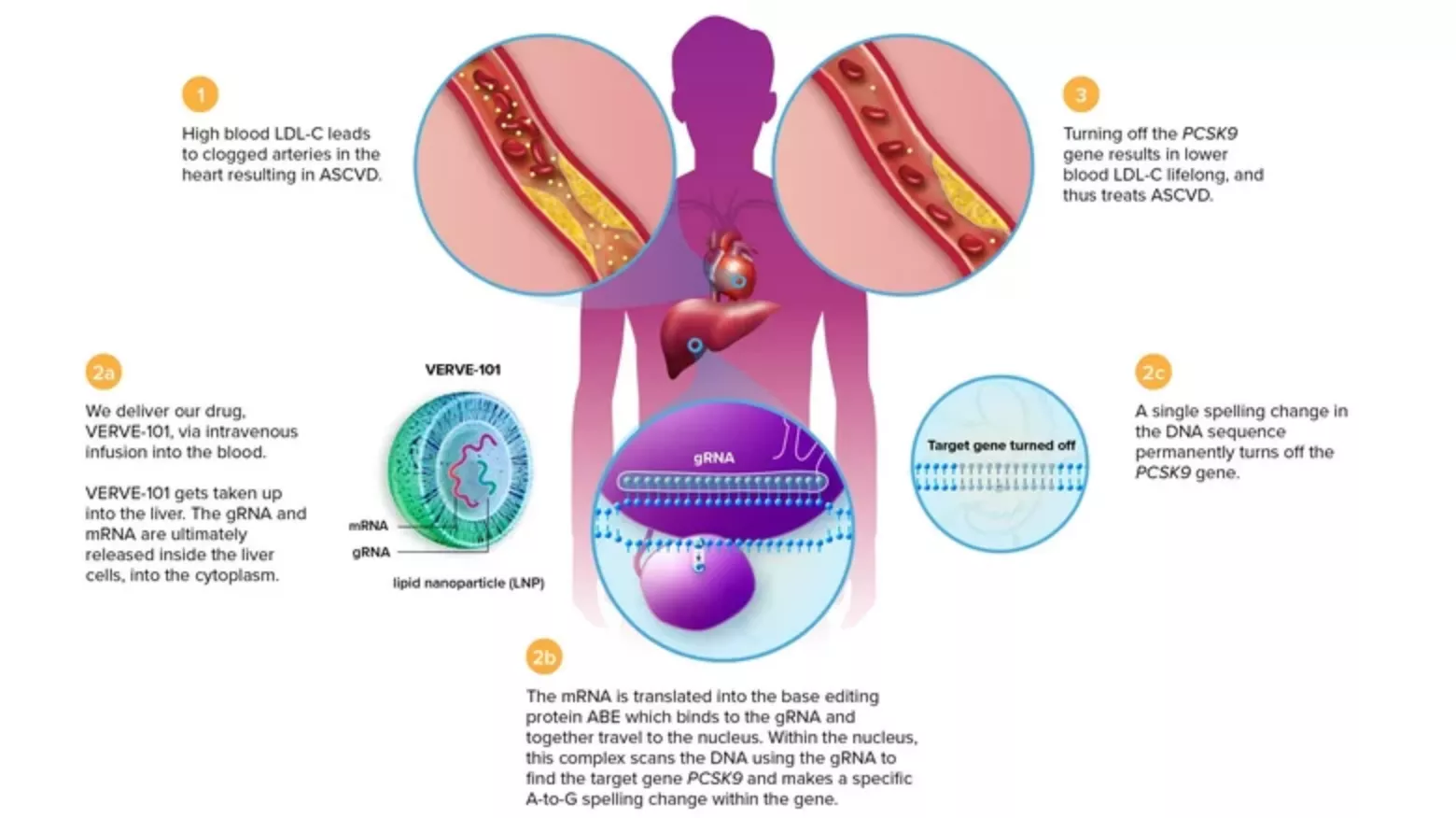The future of humans without heart disease and death may come from one-time gene editing therapy - or at least it is the dream of a company called verse therapeutics. As the result of the efforts of Sekar kathiresan, a famous cardiologist, verve aims to selectively change the part of the human genome that leads to heart attack using controversial gene editing techniques such as CRISPR.
Low density lipoprotein (LDL), commonly known as "bad" cholesterol, is one of the key triggers of atherosclerotic cardiovascular disease (ASCVD). However, the study found that some genes can be turned off to reduce the risk of heart attack through a course of treatment. Or, as kathiresan said, it would be a "once and for all cure" for a problem that has killed millions of people around the world. Verve's single course system targets the liver, where it delivers gene editing materials and turns off problematic genes.
In addition to LDL, triglyceride rich lipoprotein (TRL) or lipoprotein (a) (LP (a)) represent three pathways associated with the risk of heart attack, but verve's gene editing therapy will target each pathway and kill the risk forever. The company is currently carrying out gene editing for two independent cholesterol pathways - PCSK9 and ANGPTL3. Verve made it clear that it only carries out gene therapy for adults and will not edit the genome sequence of eggs / sperm cells or embryos to avoid any ethical problems.
Promising but still very far away

Since heart attacks are caused by the accumulation of cholesterol in blood vessels, verve's proposed gene editing therapy aims to stop this accumulation by changing metabolic behavior at the gene level. According to Bloomberg, the company's goal is to start gene editing experiments on adults who have experienced a heart attack due to high cholesterol accumulation caused by genetic diseases. However, the ultimate goal is to eventually include young subjects so that they can be used as a preventive measure for heart related problems.
It is reported that verve has experimented with its new gene editing method in monkeys and achieved positive results. After treatment, the level of bad cholesterol decreased by 59%. The company's current goal is to begin testing its genome-wide treatment to prevent heart attacks in humans in the coming months. However, it may take several years before sufficient data are recorded to begin appropriate clinical trials and make the therapy widely available for certification.
In addition, there is a huge constraint. Analysts estimate that verve's treatment for changing DNA may cost $50000 to $200000, which is far beyond the affordability of most people. But for the pioneers behind the treatment, this is the "answer to heart disease", provided that it does work. At present, this seems to be a far fetched goal, but it is possible to make breakthrough progress, so as to find a permanent solution to human cardiovascular dilemma at one time.